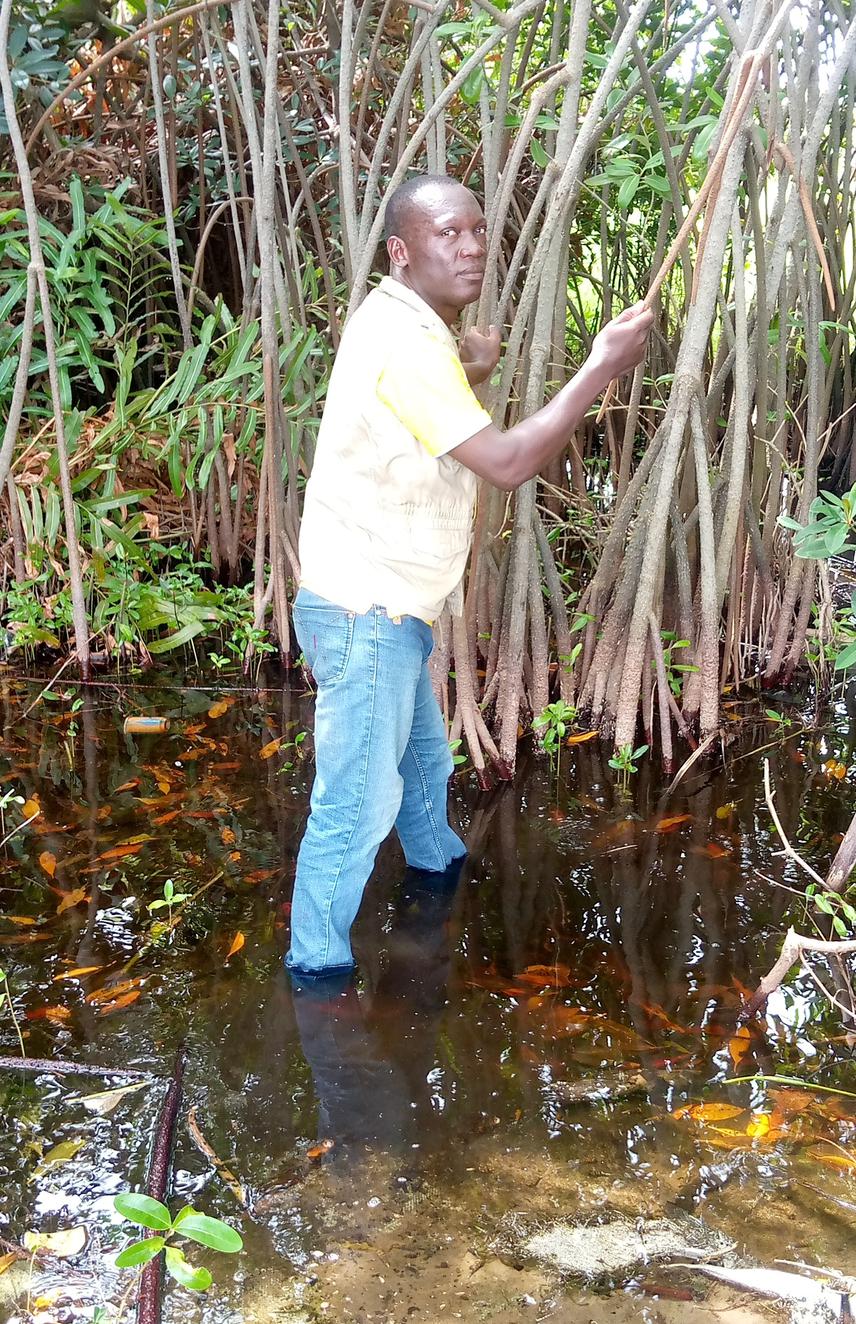Articles featuring the project.
Houenagnon Marius Yetein
Coastal Lagoon Landscapes (CLL) is situated in the southern Benin. It is one of the wetland areas at Ramsar site 1017 in Benin that was internationally recognized in 2000 as an indicator of global environmental assessment targets and a very important site supporting high biological productivity. CLL has high conservation value and is crucial for both national development and the livelihoods of approximately 91,353 local inhabitants. It provides a variety of ecosystem services, supports livelihoods of local communities, and harbour populations of many endangered plant and animal species. The mean annual rainfall in the area varies approximately between 900 and 1100 mm. The CLL is subject to intense pressure due to rapid increasing of population demography, land requirement for farming, logging and hunting activities, resulting in its ecosystem degradation.

The general objective of this project is to provide baseline data for developing a conservation and sustainable management strategy of the CLL and in building the technical capacity for the conservation and sustainable management strategy implementation.
Specifically, the project aims to focus on several important scientific, conservational, and social problems, including:
(i) assess the botanical diversity of the CLL and describe the vegetation patterns; therefore, providing a baseline for monitoring environmental and anthropogenic degradation and forest dynamics.
(ii) produce plant species checklist of CLL area with a red data list highlighting the conservation status of species with a high value conservation.
(iii) map the distribution of these species of high conservation priority and locate priority habitat for biodiversity conservation.
(iv) map above and below biomass carbon stock (regulation services) in the CLL, these data will allow the development of a REDD+ pilot project and provide a tool for communities to monitor carbon biomass and expand their scientific knowledge.
(v) provide recommendations for the conservation and sustainable management of its biodiversity and threatened species.
The implementation of this study supports national forest policy by defining priority habitats for biodiversity conservation. The findings of this study will provide local NGO and local associations involved in conservation and policymakers with decision support tools for a sustainable management of this wetland area. Results will also provide strategy development at the local and national levels and will be useful to Benin Republic forest carbon assessment systems and regional REDD+ strategies. Furthermore, outputs of this project will help to achieve the activities defined in the Ramsar site 1017 management plan for the 2022-2032.